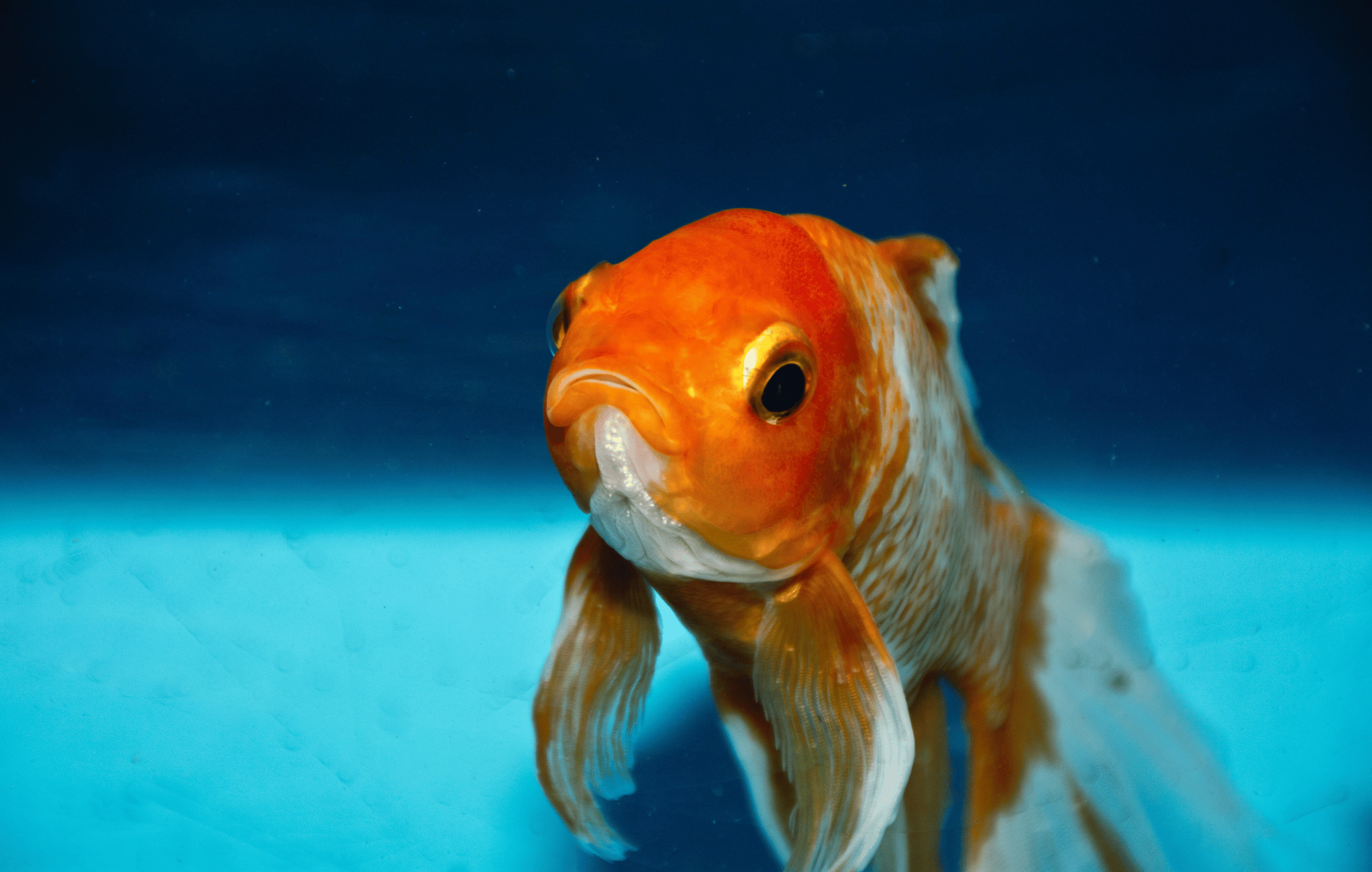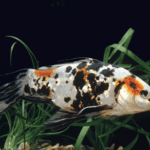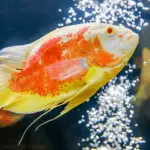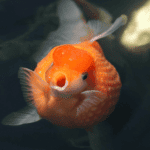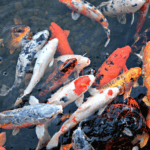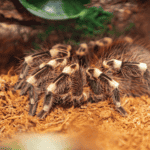How often have you glanced at your goldfish swimming blissfully in its bowl and wondered: Do goldfish sleep?
Though they lack eyelids and traditional sleep patterns like those of humans, goldfish do indeed have a unique way of resting.
Understanding Goldfish Resting Behavior
Unlike humans, goldfish don’t have eyelids to shut when they sleep. Instead, they enter a state of reduced activity and metabolism, which can be considered their version of sleep.
This period of rest is critical for their health and well-being. During this time, their bodies repair tissues, grow, and perform other vital functions.
Recognizing When a Goldfish is ‘Sleeping’
Identifying a ‘sleeping’ goldfish can be a bit tricky since they don’t exhibit typical sleep indicators like closed eyes or immobility. Here are some signs to look for:
- Reduced movement: Goldfish typically float in one spot with minimal movement when they are resting.
- Dimmed colors: The bright, vibrant colors of a goldfish may appear slightly dimmed during their resting phase.
- Night-time: Goldfish usually rest during the night but can adjust their resting periods to match light patterns.
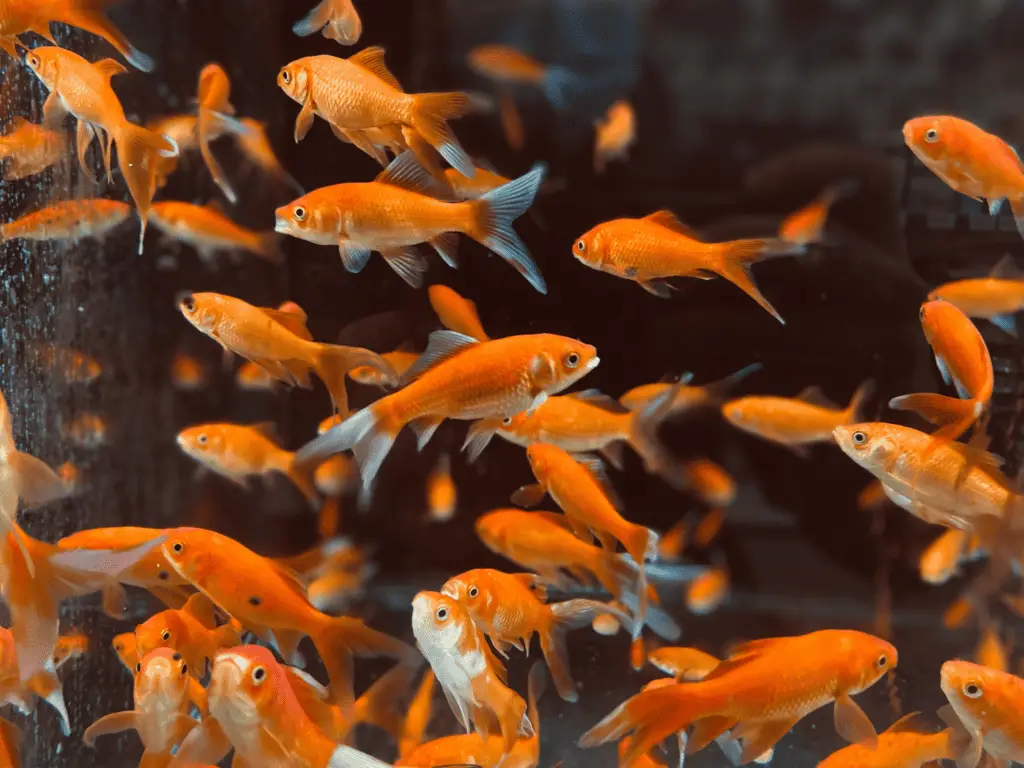
The Importance of a Healthy Sleep Cycle
Maintaining a consistent sleep cycle is as essential for goldfish as it is for humans.
A goldfish’s sleep cycle helps them rejuvenate, grow, and repair their bodies. Interruptions or disturbances to this cycle can lead to stress and health issues in the long run.
How to Support Your Goldfish’s Sleep Cycle
There are several ways you can create a conducive environment for your goldfish’s sleep:
- Provide a dark environment: Like humans, goldfish need darkness to rest effectively. Consider using an aquarium light that can be turned off at night.
- Ensure quiet surroundings: Goldfish can perceive vibrations and sudden sounds in the water, which can interrupt their rest.
- Maintain good water quality: Clean, well-oxygenated water helps ensure your goldfish is comfortable and stress-free, promoting better rest.
Do Goldfish Dream?
With their unique sleep patterns, one might wonder if goldfish dream like humans do.
Current research suggests that fish don’t experience REM sleep, whereas dreaming occurs in mammals. Therefore, it’s likely that goldfish don’t dream, but more research is needed to confirm this.
The Evolutionary Reason Behind Goldfish Sleep Patterns
Understanding the evolution behind the sleep patterns of goldfish can provide insights into their unique resting behavior.
Goldfish, being prey animals in the wild, developed these sleep habits as a survival mechanism. They stay somewhat alert, even during their resting periods, to evade potential predators.
Do All Fish Sleep Like Goldfish?
Although many fish species share similar resting patterns with goldfish, there are variations in the animal kingdom.
Some species of fish, like certain types of sharks, need to keep swimming even when resting to ensure water flow over their gills for oxygen. Other fish species may burrow in the sand to rest.
Goldfish and Circadian Rhythms
Despite living underwater, goldfish, like many other organisms, are influenced by natural light cycles, or circadian rhythms.
Goldfish tend to be more active during the daytime and rest during the night, indicating that they follow a diurnal pattern. Alterations in light exposure can adjust their rest-activity cycle.

How Do Goldfish Respond to Sleep Deprivation?
Just like humans, goldfish can be negatively affected by sleep deprivation.
Consistent disturbances during their rest periods can lead to stress and other health issues, such as a weakened immune system and slower growth rates. Therefore, it’s important to respect their rest time and provide a peaceful environment.
Is Your Goldfish ‘Sleeping’ Too Much?
While resting is crucial for goldfish, excessive inactivity might indicate a problem.
If your goldfish is floating at the bottom of the tank for prolonged periods, appearing lethargic or displaying dim colors even during its active phase, it could be a sign of illness. Consult with a vet or aquatic pet specialist if you notice such behavior.
Conclusion
While goldfish might not snuggle into a cozy bed and close their eyes at night, they do engage in a form of rest that shares similarities with sleep. By providing a calm, dark, and clean environment, you can support your goldfish’s sleep cycle and contribute to its overall health and well-being. Although they probably don’t dream, their unique resting behavior is a fascinating aspect of goldfish biology and a testament to the diverse ways in which different creatures on our planet rest and rejuvenate.
Frequently Asked Questions
Q1: Do goldfish close their eyes to sleep?
No, goldfish lack eyelids, so they don’t close their eyes when they sleep. Instead, they enter a state of reduced activity and metabolism, which is their form of rest.
Q2: How can I tell if my goldfish is sleeping?
When goldfish are resting, they typically float in one spot with minimal movement and their vibrant colors may appear slightly dimmed. They tend to rest during the night but can adjust their resting periods to match light patterns.
Q3: How can I support my goldfish’s sleep cycle?
You can create a conducive environment for your goldfish’s sleep by providing a dark, quiet environment and maintaining good water quality. This helps your goldfish rest better and stay healthier.
Q4: Do goldfish dream?
Current research suggests that fish do not experience REM sleep, where dreaming occurs in mammals. Therefore, it’s likely that goldfish don’t dream, but further research is needed to confirm this.
Q5: Why do goldfish sleep the way they do?
Goldfish’s sleep patterns have evolved as a survival mechanism. Being prey animals in the wild, staying somewhat alert, even during their rest periods, helps them evade potential predators.
Q6: Do all fish sleep like goldfish?
While many fish species share similar resting patterns with goldfish, there are variations. Some species need to keep swimming even when resting, while others may burrow in the sand to rest.
Q7: How do goldfish respond to sleep deprivation?
Just like humans, goldfish can be negatively affected by sleep deprivation. Consistent disturbances during their rest periods can lead to stress, a weakened immune system, and slower growth rates.
Q8: Is it a problem if my goldfish is “sleeping” too much?
While resting is essential for goldfish, excessive inactivity might indicate a problem. If your goldfish is unusually inactive or displays dim colors during its active phase, it could be a sign of illness. In such cases, consult with a vet or an aquatic pet specialist.
